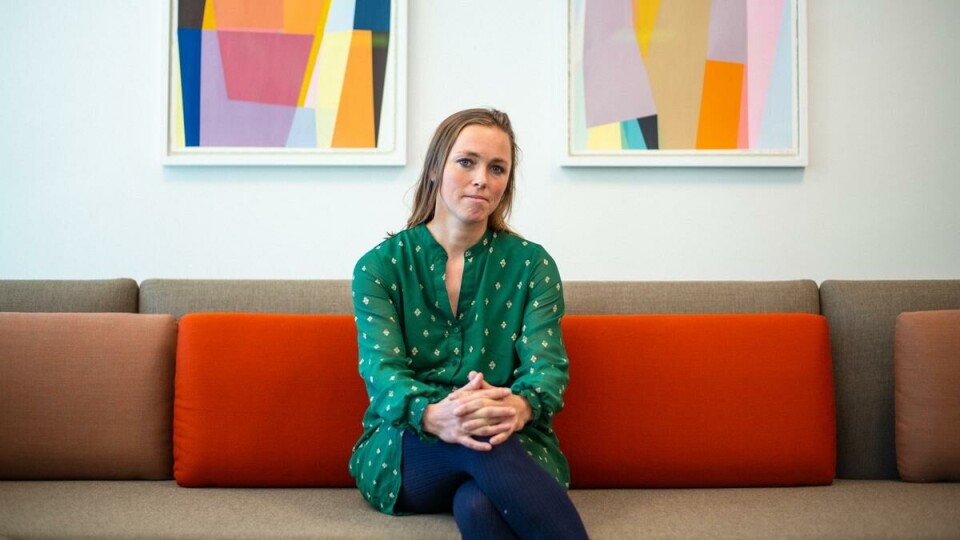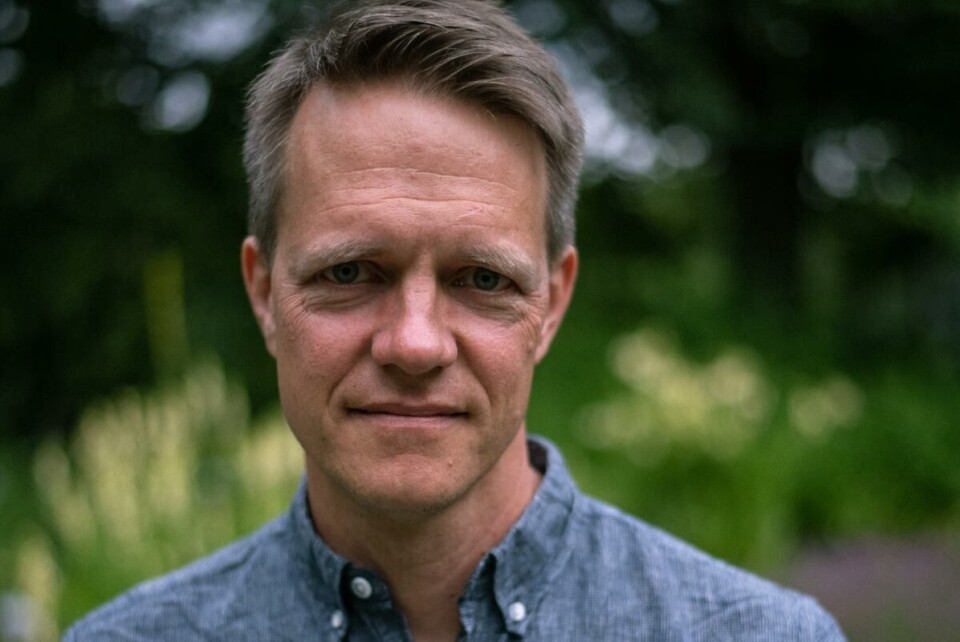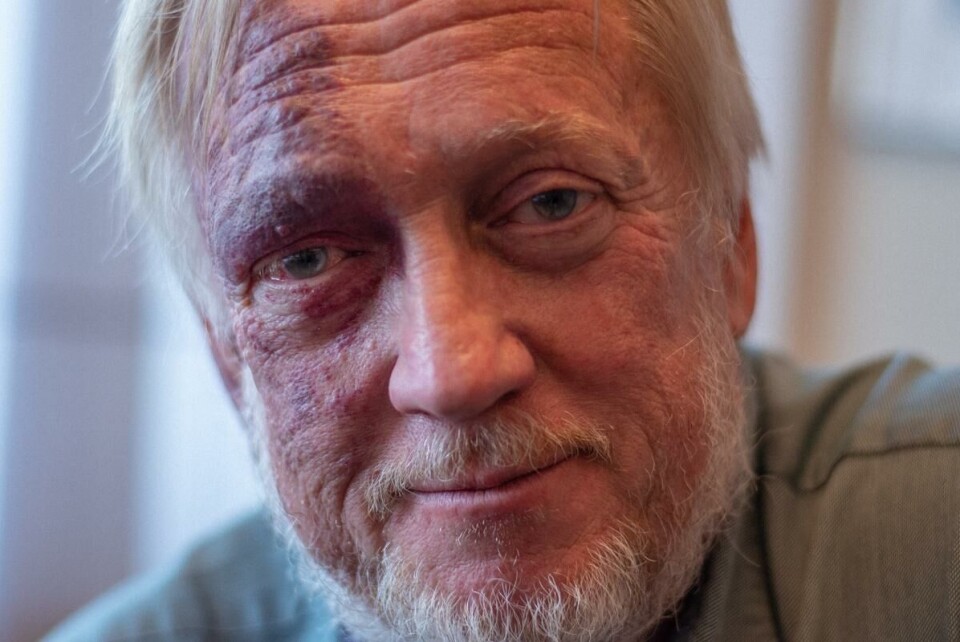
The Corona crisis shortened the wings of UiO’s researchers
A pandemic was what was needed to cut UiO’s flights. Despite newly acquired Zoom-knowledge, researchers have to get back in the air, but several are pushing for structural changes.
The University of Oslo (UiO) has high ambitions as an international research university, but this has brought with it a lot of travelling by plane and a great amount of greenhouse gas emissions. From the 12th of March, however, the Corona crisis put a stop to the university’s travelling.
Professor and geophysicist at the Centre for the Earth’s development and dynamics at UiO, Clinton Phillips Conrad, is one of those who see the benefits the pandemic can have for the climate.
- The climate crisis will be with us for much longer than the Corona crisis. Hopefully, we will learn from the pandemic and reconsider how things are done, he says.
Personally, the professor has experienced that several changes have worked well:
- Covid-19 has proven that disputations can be done digitally, rather than flying in other academics to Oslo for only one to two days. This was not normal before the pandemic, he says, and adds that much of teaching, meetings, and conferences easily can be moved to Zoom.
Not everything can be adjusted to digital solutions, however. The travel stop in March caused postponed and cancelled field work, such as in Greenland.

- The measurements we want to perform have never been done before. We have to be there physically to place the measuring instruments manually. There is no other way around it, and without the data the project can’t continue, he says.
The researchers Universitas spoke to, states that they have had between one and three yearly flights. They think travel reductions are needed. At the same time, Knut Gunnar Nustad, professor in social anthropology, points out the importance of distinguishing direct research trips – such as field work and other data collection – from various types of meetings. Nustad’s anthropologic field work usually lasts for several months at a time. According to him, this makes up for a vanishingly small part of total travel at the university.
- There are probably many flights that can be reduced within the administration of the university, for instance.
Missing out online
Political scientist and professor of international political economy, Dag Harald Claes, is clear about the advantages of physical presence in international arenas.
- It is especially important in the initial phase of research. It is through contact with others that you develop ideas, ask questions, and are challenged intellectually. This phase is also marked by a significant component of unpredictability, he says.
- In political science, some of the method work entails interviewing central sources. Even though this can be done digitally, the really good interviews often happen through physical contact. The digital interview becomes too stylised, he says, but adds that the later phases of the process can be done digitally, and that this already happens quite often.

The conference lions
Jon Hovi, professor of international environmental politics, was co-responsible for the online conference “Environmental Politics and Governance” this year. It worked surprisingly well for the 30-40 participants – however, they still expressed a wish for a physical conference next year.
- Regardless of how well a conference works online, you lose something when you don’t meet peers face to face, says Hovi, who thinks that some of his best work has been results of conferences.
The researchers Universitas spoke with were unanimous in believing that the number of conference trips can be reduced. Hovi’s opinion is that especially the large “mass conferences” can benefit from being moved online.
- You can get completely faint by these conferences. You enter such cramped hotel lobbies that you just want to leave immediately. Also, the travel itself is often quite long, he says.
Claes agrees with this, but states that the benefits are difficult to predict. He highlights meeting academics you otherwise wouldn’t meet as a significant advantage.
The youngest struggle the most
The older researchers are most concerned for the younger research environment.
- The international research conferences are without doubt more important for younger academics. Established researchers have to a great extent already created an extensive research network for themselves, says Nustad.
Claes says that younger researchers are facing much greater competition over research positions at the universities than what he did when he was young: One has to publish in recognised journals, participate in research collaboration, and acquire financing. For this, you need to get out in the world.
- They are reliant on getting an international network, both to spread their research, but also simply in order to get paid for their work, says Claes.
Doctoral research fellow at the centre for development and environment (SUM), Susanne Normann, agrees that international meeting places are important for younger researchers. She also emphasizes that you should not underestimate the physical component of research.
- Many qualitative methods require information from the environment where a phenomenon occurs as part of the data foundation. This cannot be done digitally, she says.
At the same time, Normann thinks that some things can and should be done digitally. Personally, she has completed successful digital research interviews during the Corona pandemic. Time pressure, however, also causes flights to be unavoidable at times.
- Us doctoral research fellows have three years to complete our projects. This is already a quite short time. We need some structural changes to allow individual researchers to use buses and trains without this preventing us from completing our projects within the given time.
- We have seen that we can do things differently. Many large conferences found digital solutions. There will also be more demands for us to travel less. We will not return entirely to the way things were before the pandemic.
Mariel Aguilar-Støen, researcher at the Centre for development and environment
Can aim higher
Mariel Aguilar-Støen, professor at SUM, has a good overview over the environmental movement at UiO. Together with a group of university staff, she has among other things engaged in getting more climate and environment in the university’s strategy document, Strategy 2030. She is clear about believing that the Corona crisis will affect travelling.
We have seen that we can do things differently. Many large conferences found digital solutions. There will also be more demands for us to travel less. We will not return entirely to the way things were before the pandemic.
Individual researchers should not have to bear the reductions alone – it is mainly structural factors in academia that pressures younger researchers to travel a lot, thinks the SUM researcher.
- Why are younger researchers experiencing this as pressure? Because international publications and financing are important criteria for positions at universities, she says.
Aguilar-Støen explains that many researchers and universities have supported a wish for better processes and criteria for evaluating research quality. The idea is that sustainability and environment should be included as a central consideration in quality evaluations of research. She also thinks that UiO is in a strong position to push for such a change.
While many international universities are experiencing cutbacks , UiO is an inviting workplace for researches from all over the world. On a global basis, the university has strong research environments, and the Norwegian welfare model is very attractive, she thinks.
- In such a situation we can pose other requirements, for example when hiring. We have a reputation that is visible internationally and that can be used to promote sustainability and the climate cause, Aguilar-Støen elaborates.
She thinks that there should also be more political pressure for systemic changes.
- Younger researchers should get organised in unions, so that they are not alone with the responsibility. At the same time, the administration at the university should support the younger researchers by applying pressure at a higher, political level, she says and concludes:
- It is important to reduce flights, but I don’t think it is the most important thing. We need systemic changes. It should be possible to deal with two issues at once.

































